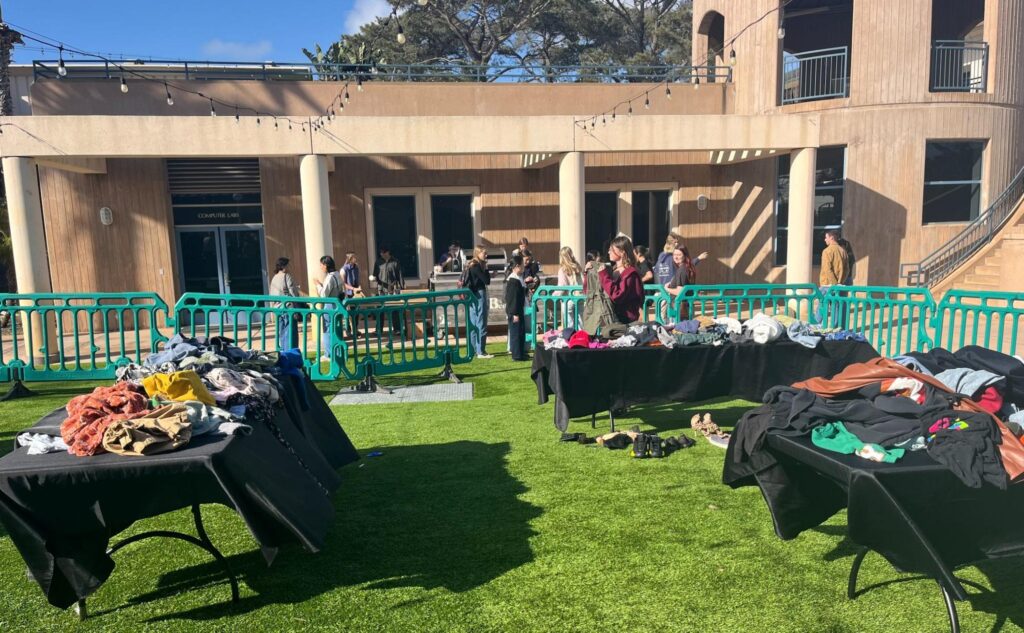
Students could be spotted on Cunningham Lawn looking through piles of second hand clothes, sipping on a cup of coffee, enjoying Ben and Jerry’s ice cream or stopping by the educational booths at the “Live Justice” event.
“Live Justice” is an annual Point Loma Nazarene University event hosted by the CJR (Center for Justice and Reconciliation) that took place on April 2 this year. The CJR specializes in conducting research on a variety of topics, from human trafficking to sustainability, and brings justice-focused events to campus, including “Cup of Culture” and “Roots of Giving.”
Marissa Salgado, CJR coordinator and student initiatives leader, attended the event and worked alongside student volunteers. She outlined how the CJR chose to demonstrate simple sustainable choices at the event, such as serving fair trade Ben and Jerry’s and Kakawa Coffee, which is ethically sourced.
“Sometimes justice can feel really big and overwhelming,” Salgado said. “Our hope with an event like this is that students can realize it’s the little things we can do from day to day that make a difference.”
Seated at the “Wear Justice” table was Sydney Armstrong, a second-year political science major, educating students about ethical clothing practices. Her heart for sustainability advocacy stemmed from her background growing up in the Dominican Republic as she watched young kids forced into child labor, she said.
Armstrong was born in Guatemala, Mexico, and moved to Costa Rica and Panama before settling in the Dominican Republic. She witnessed first hand how many of these countries struggled with issues of poverty and child labor.
“Growing up, I got to see and meet these kids that had so much potential, but they have been shoved into this lifestyle where they felt like they couldn’t do anything else,” she said.
Small habits students can take to help stop child labor, Armstrong said, include not contributing to the fast fashion industry or companies like Shein, thrifting and investing in a capsule wardrobe – having a few timeless and versatile pieces rather than buying an excess of clothing.
To demonstrate one of these sustainable practices, the CJR had tables of free second hand clothing for students to sort through. These clothes were all donated by PLNU students and staff, and the leftover clothes were to be given to a local Salvation Army women’s shelter, according to Lirah Packman, a third-year psychology major and CJR student events leader.
Packman ran a table at the event with an interactive activity that read: “What is Justice to you?”
Packman said that this activity – where students got to put a sticker on the idea that they believed encompassed justice – was used to exemplify how justice can mean many different things to people.
Salgado said that these interpretations of justice can be used for avenues of change. She encourages students to do their research on any area of justice that they are interested in getting involved in because there is likely a local organization contributing to it, she said.
If students don’t feel ready to join an organization doing justice work yet, she said that there is power in presence and “practicing proximity to communities that look different from them.”
Another resource is visiting the CJR, located in the Starkey B administration building, or following its Instagram: @plnucjr. At their office, students can find people working, like Salgado, who are willing to answer any questions on how to volunteer at events or start their own justice journey.
